|
The Film

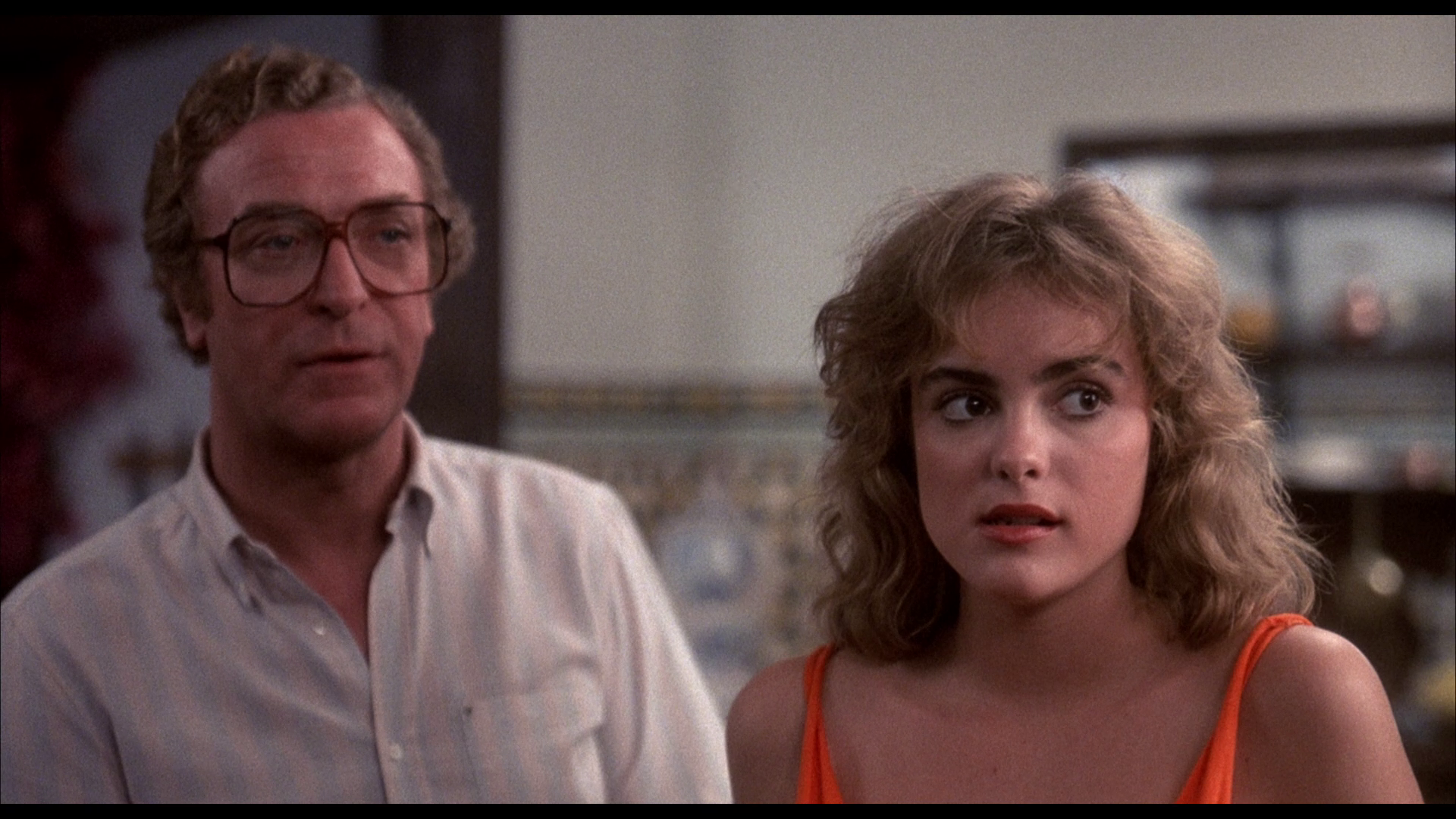 Blame it on Rio (Stanley Donen, 1984) Blame it on Rio (Stanley Donen, 1984)
The final theatrical feature film in the long career of its director Stanley Donen, Blame it on Rio (1984) was a remake of Claude Berri’s 1977 picture Un moment d'égarement (In a Wild Moment). Blame it on Rio was the twenty-eighth film Donen directed: although Donen had been responsible for some acknowledged classics (for example, Singin’ in the Rain, 1952), some of his later films were much less well-received (Lucky Lady, 1975; or the film which Donen directed prior to working on Blame it on Rio, Saturn 3, 1980).
The film focuses on Matthew (Michael Caine), who plans a holiday in Rio de Janeiro with his friend Victor (Joseph Bologna). Matthew and Victor are working together in Sao Paulo, and Victor is going through a bitter divorce. Meanwhile, the relationship between Matthew and his wife Karen (Valerie Harper) is troubled, and Karen requests time away from Matthew, refusing to travel to Rio with him.
Victor and Matthew travel to Rio with their respective daughters, Jennifer (Michelle Johnson) and Nikki (Demi Moore). Victor and Matthew are shocked to see their daughters parading topless on the beach. During the evening, Victor abandons Matthew to begin an affair with a local woman. Matthew finds himself on one of the beaches where a wedding is taking place. Bumping into Jennifer, Matthew observes the wedding. Carried away by the excitement of the ceremony, Jennifer kisses Matthew, and the pair end up having sex on the beach.
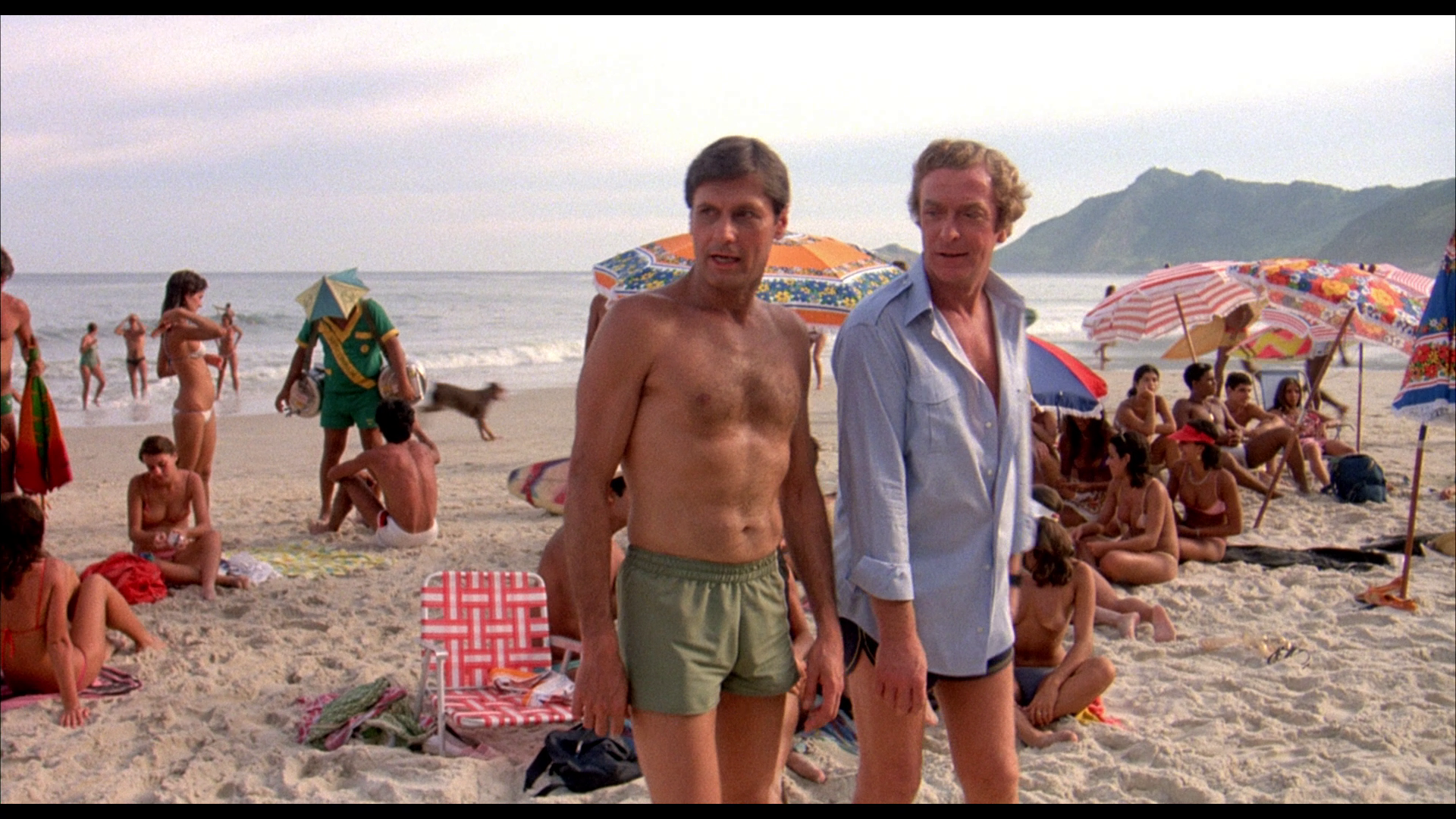 In the following morning, Matthew attempts to persuade Jennifer that the previous night’s incident was a one-off and is not to be repeated. However, Jennifer continues to pursue Matthew, leading to Matthew struggling to hide his sexual relationship with Jennifer from her father, Matthew’s best friend Victor. When Victor becomes aware that his beloved daughter has begun a sexual relationship with an older man, Matthew struggles to keep his identity as Jennifer’s lover a secret. When an unknowing Victor asks Matthew to help him identify Jennifer’s lover, things become even more complicated; this is compounded by the arrival of Karen, who has revelations of her own. In the following morning, Matthew attempts to persuade Jennifer that the previous night’s incident was a one-off and is not to be repeated. However, Jennifer continues to pursue Matthew, leading to Matthew struggling to hide his sexual relationship with Jennifer from her father, Matthew’s best friend Victor. When Victor becomes aware that his beloved daughter has begun a sexual relationship with an older man, Matthew struggles to keep his identity as Jennifer’s lover a secret. When an unknowing Victor asks Matthew to help him identify Jennifer’s lover, things become even more complicated; this is compounded by the arrival of Karen, who has revelations of her own.
Though the film is remarkably similar to Claude Berri’s Un moment d'égarement, even down to the staging of many sequences (for example, the drive that the families make to the hotel), Blame it on Rio makes some changes to the material. Chiefly, whereas Claude Berri’s film had been set on the Côte d'Azur, Donen’s remake relocates the narrative to Rio de Janeiro. Given this, the sequence in which the fathers experience shock at finding themselves on a beach where female topless nudity seems to be de rigueur doesn’t make a whole lot of sense, given that attitudes towards nudity in Rio de Janeiro are (or at least were, when the film was made) notoriously more conservative than on the beaches in the South of France. (‘Maybe we should talk to them’, Victor tells Matthew, referring to the women on the beach. ‘We can’t. They’re practically naked’, Matthew protests. ‘Try to picture them with clothes on’, Victor tells him.) Blame it on Rio also switches the roles of Matthew and Victor (in the Berri film, named Pierre and Jacques, respectively): in Un moment d'égarement, it is Pierre (the protagonist) who is divorced; in Blame it on Rio, by contrast, it is Victor (the protagonist’s friend) who is going through his divorce.
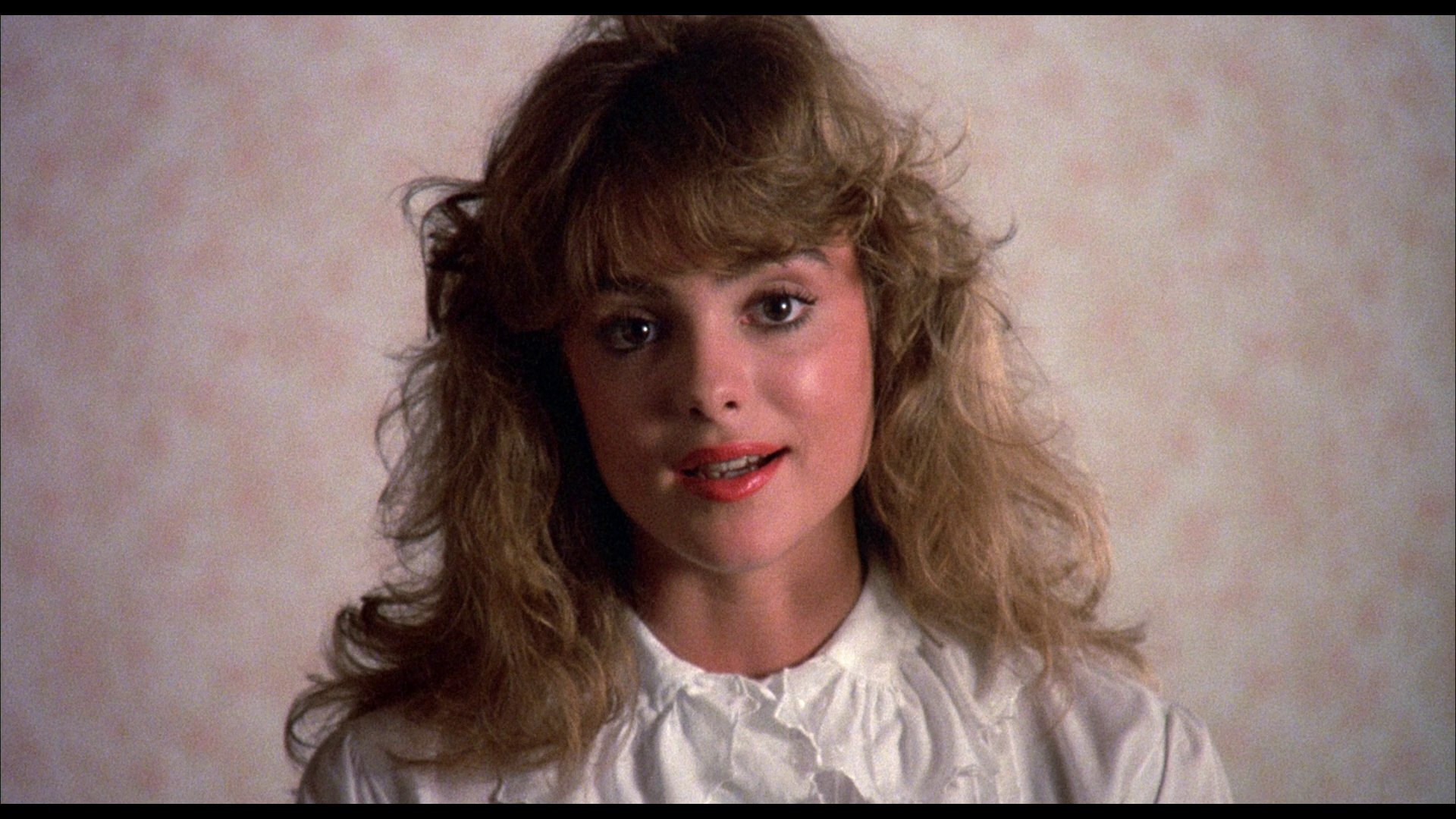 Another major addition that Blame it on Rio brings to the narrative of Un moment d'égarement is the use of direct-to-camera address; given the film’s otherwise fairly slavish emulation of the beats of Claude Berri’s film, these reflexive moments of narration are most likely responsible for the difference in running times between the two pictures (Berri’s film has a lean running time of just over 80 minutes, whereas like its middle-aged protagonists Blame it on Rio runs at a slightly flabby 100 minutes). Interspersed throughout Blame it on Rio are moments of to-camera address from Matthew and, less frequently, Jennifer. These moments of narration – delivered by the characters in close-up and against a plain, abstract backdrop – are reflective, taking place one year after the events depicted within the narrative. They break the metaphorical ‘fourth wall’; although this is a well-established theatrical technique, given the film’s focus on sexual neuroses and middle aged men lusting after young women, the use of this technique feels very much like an attempt to mimic Woody Allen’s similar use of direct-to-camera address in Annie Hall (1977). Allen once said about his use of this technique in Annie Hall that it was an attempt to communicate directly with ‘many of the people in the audience [who will have] had the same feelings and the same problems’, and by doing so ‘confront’ these issues (Allen, quoted in Björkman, 1995: 77). It seems that by using a similar mode of address, Blame it on Rio is attempting something similar – though it’s questionable as to how many forty-something men in the audience may have been tempted with the desire to sleep with the teenaged daughter of their best friend (or rather, to be seduced by her and pursued aggressively for a ‘repeat engagement’). Another major addition that Blame it on Rio brings to the narrative of Un moment d'égarement is the use of direct-to-camera address; given the film’s otherwise fairly slavish emulation of the beats of Claude Berri’s film, these reflexive moments of narration are most likely responsible for the difference in running times between the two pictures (Berri’s film has a lean running time of just over 80 minutes, whereas like its middle-aged protagonists Blame it on Rio runs at a slightly flabby 100 minutes). Interspersed throughout Blame it on Rio are moments of to-camera address from Matthew and, less frequently, Jennifer. These moments of narration – delivered by the characters in close-up and against a plain, abstract backdrop – are reflective, taking place one year after the events depicted within the narrative. They break the metaphorical ‘fourth wall’; although this is a well-established theatrical technique, given the film’s focus on sexual neuroses and middle aged men lusting after young women, the use of this technique feels very much like an attempt to mimic Woody Allen’s similar use of direct-to-camera address in Annie Hall (1977). Allen once said about his use of this technique in Annie Hall that it was an attempt to communicate directly with ‘many of the people in the audience [who will have] had the same feelings and the same problems’, and by doing so ‘confront’ these issues (Allen, quoted in Björkman, 1995: 77). It seems that by using a similar mode of address, Blame it on Rio is attempting something similar – though it’s questionable as to how many forty-something men in the audience may have been tempted with the desire to sleep with the teenaged daughter of their best friend (or rather, to be seduced by her and pursued aggressively for a ‘repeat engagement’).
In the first instance of this narration, Matthew speaks to the audience, telling them simply that ‘What happened, happened. You just never know’. This que sera, sera philosophy underpins the film – with even the title (changed from Only in Rio, which was initially to be the film’s moniker) symbolic of the avoidance of responsibility: the ‘blame’ for Matthew’s (and Jennifer’s) actions should be laid ‘on Rio’ and what that location symbolises. (‘Sao Paulo is where all the work gets done’, Matthew says early in the film, ‘Where all the fun gets done is in Rio’.) Matthew then continues to tell a very Woody Allen-esque joke focusing on the theme of miscommunication: ‘One time, the company I work for transferred me to an island in the Pacific. Fantastic place. I invited my girl to visit me. I sent her a postcard every day with a single word on each card. I wrote: “Found a virgin paradise. It’s yours, Matthew”. Naturally, they were delivered in the wrong order. The message she got was: “Found a virgin. It’s paradise. Yours, Matthew”. I never heard from her again. Vacations are full of surprises, to say nothing of virgins, which brings me to last year….’ Matthew’s monologue is followed immediately by a similar to-camera monologue by Jennifer; Matthew’s smutty sense of humour is juxtaposed with the innocence of Jennifer, who declares in her monologue that ‘It had been a really mixed-up time. Just when I got to wear a smaller retainer, my parents filed for divorce. It kinda took the fun out of smiling’.
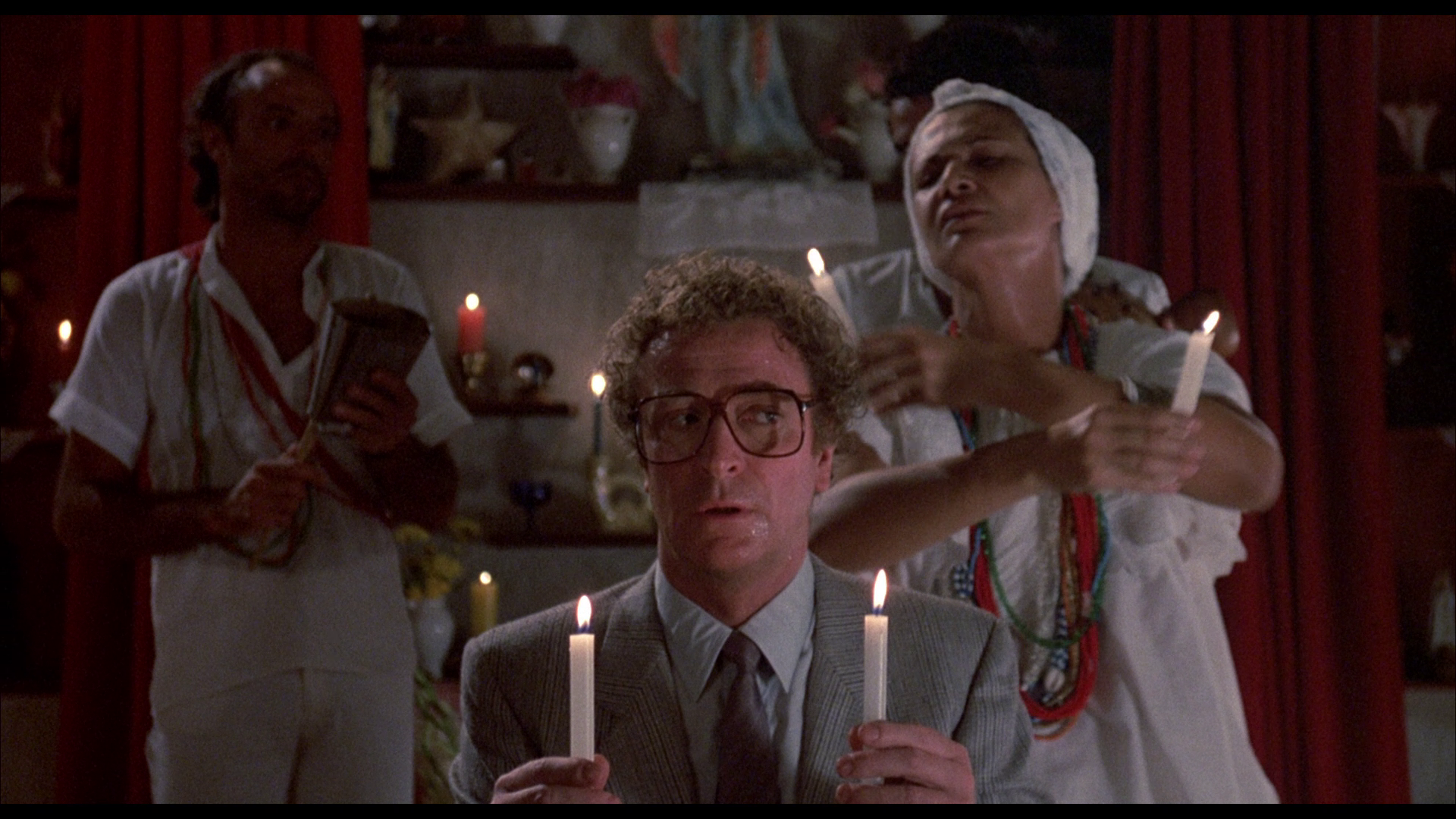 Given the naïveté of Jennifer that is established in this piece of direct-to-camera narration, her later seduction of Matthew and her aggressive pursuit of him seems to come out of left-field. By making it clear that Jennifer seduces Matthew, the film once again divests Matthew of responsibility in the affair between him and Jennifer. As if in anticipation of the audience passing negative judgement on Matthew for his sexual interest in Jennifer, the script forces Matthew to assert – once he has revealed to Victor that it is he who has slept with Jennifer – that ‘I just want you to know that I’m not someone who hangs around school yards in a raincoat’. To this, Victor responds, ‘Try it. You’d be very good. I’d give you a letter of recommendation’. Matthew’s declarations that he wishes to remain faithful to his estranged wife Karen also seem intended to remove any sense of responsibility for the affair from him. (This is facilitated by the switching of the roles of Matthew/Pierre and Victor/Jacques and their relationships with their wives, in relation to their functions in Un moment d'égarement.) Given the naïveté of Jennifer that is established in this piece of direct-to-camera narration, her later seduction of Matthew and her aggressive pursuit of him seems to come out of left-field. By making it clear that Jennifer seduces Matthew, the film once again divests Matthew of responsibility in the affair between him and Jennifer. As if in anticipation of the audience passing negative judgement on Matthew for his sexual interest in Jennifer, the script forces Matthew to assert – once he has revealed to Victor that it is he who has slept with Jennifer – that ‘I just want you to know that I’m not someone who hangs around school yards in a raincoat’. To this, Victor responds, ‘Try it. You’d be very good. I’d give you a letter of recommendation’. Matthew’s declarations that he wishes to remain faithful to his estranged wife Karen also seem intended to remove any sense of responsibility for the affair from him. (This is facilitated by the switching of the roles of Matthew/Pierre and Victor/Jacques and their relationships with their wives, in relation to their functions in Un moment d'égarement.)
Alongside this, the film incorporates some travelogue-style footage of the Rio de Janeiro locations, which given the taboo nature of the sexual liaisons on display within the film may invite comparisons for some viewers with the Caribbean films of Joe D’Amato (for example, Papaya dei Caraibi, 1977). The sequence depicting the beach wedding celebrations, during which Jennifer seduces Matthew, borrows its staging from the very similar sequence in Un moment d'égarement but adds an element of local ritual through the depiction of Jennifer and Matthew standing on the sidelines and observing whilst the bride’s mother sets fire to a portion of the bride’s dress, dancing with it as the guests strip off and wade into the surf. Later, desperate to win Matthew’s affections the smitten Jennifer seeks the help of a Umbanda priestess, a Mãe-de-santo, who provides Jennifer with a ritual to follow that, the Mãe-de-santo promises, will lead to the object of Jennifer’s affections expressing reciprocal feelings. For his part, Matthew also seeks the help of a Mãe-de-santo in helping him to ward away Jennifer’s desire for him – after a to-camera piece of narration in which Matthew tells the audience ‘What I needed was professional help’.
The film is uncut and runs for 99:57 mins.
 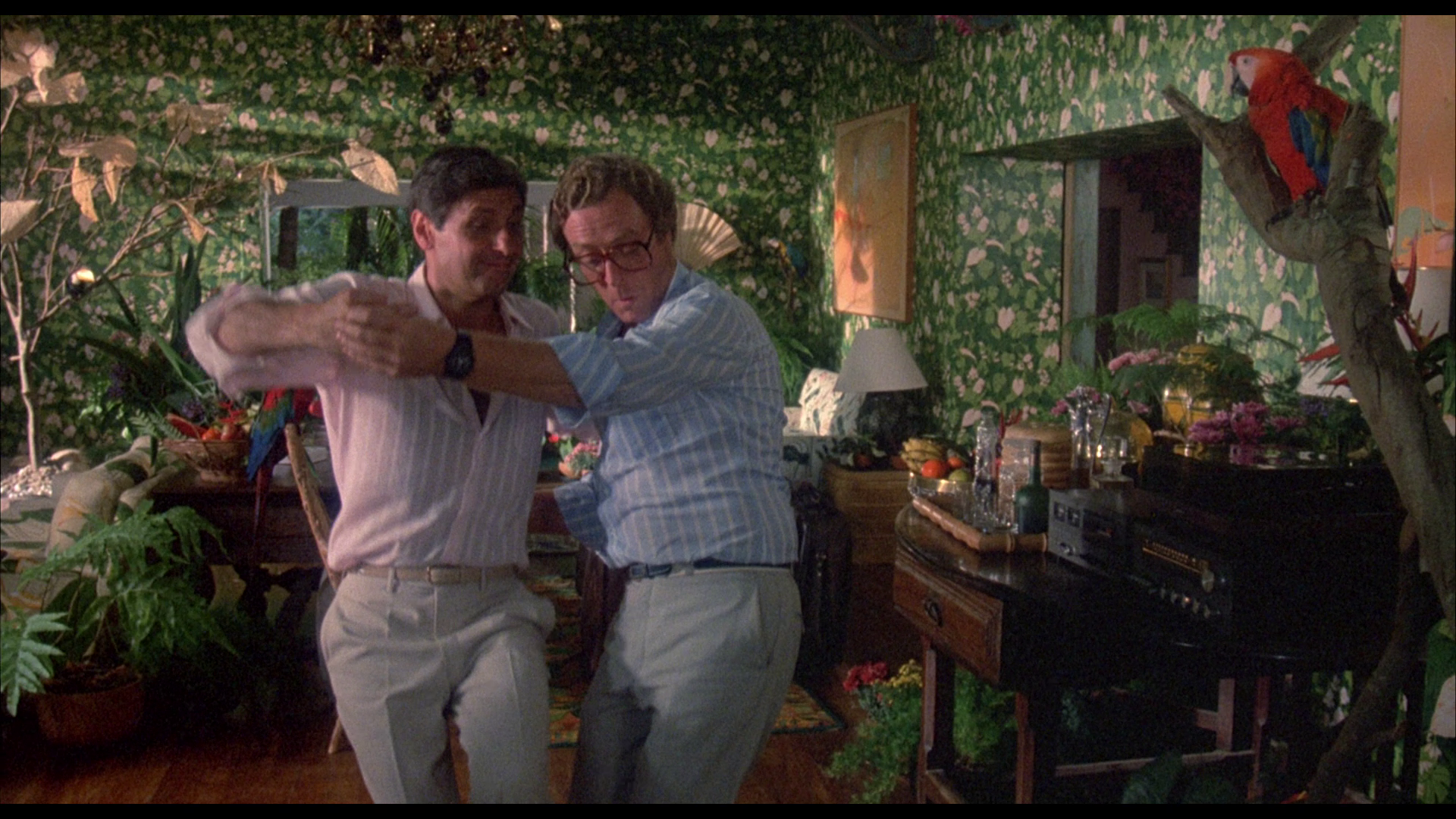
Video
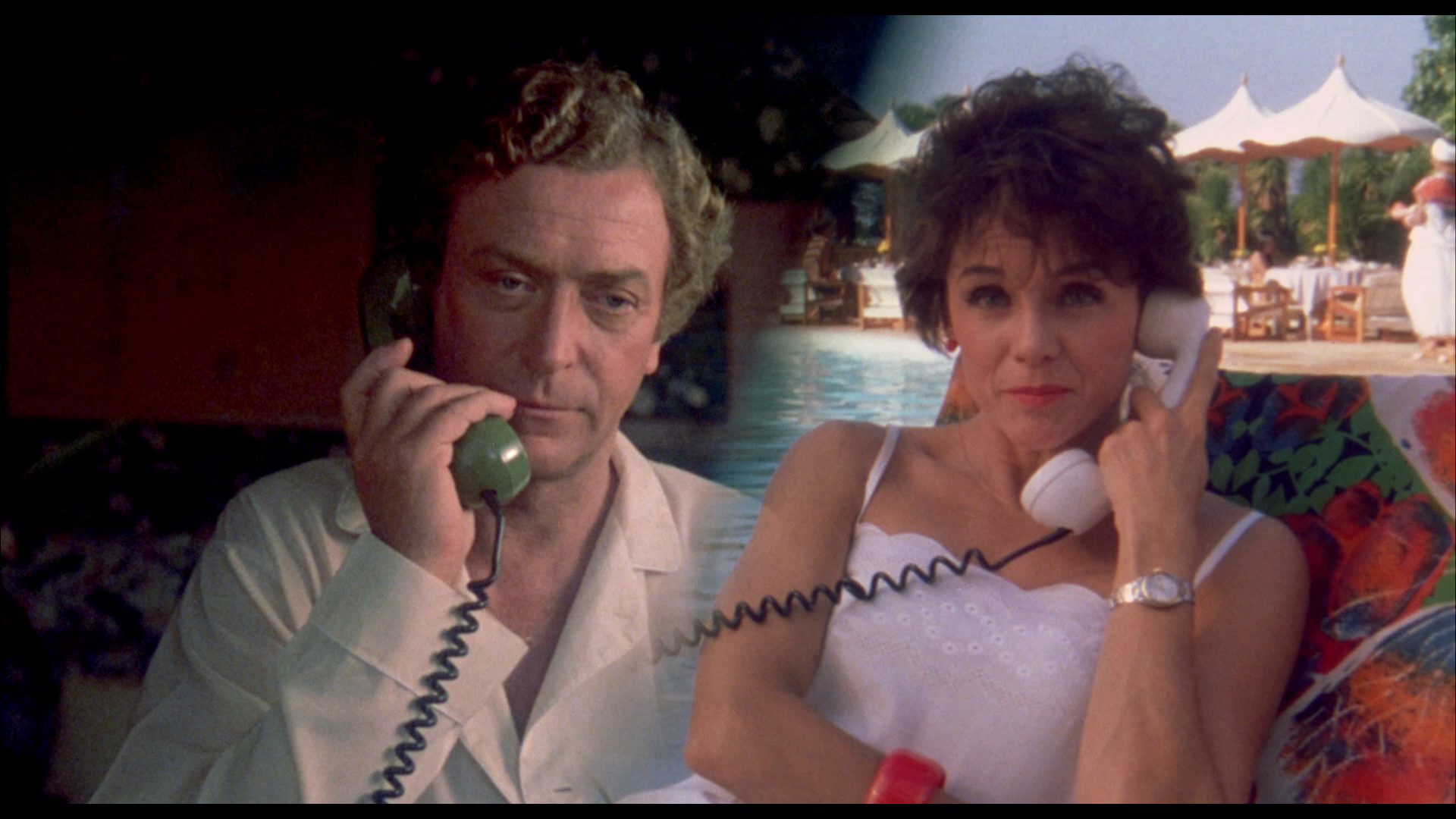 Taking up 22Gb of space on a single-layered Blu-ray disc, Blame it on Rio is presented here in the 1.85:1 aspect ratio. The 1080p presentation uses the AVC codec. Taking up 22Gb of space on a single-layered Blu-ray disc, Blame it on Rio is presented here in the 1.85:1 aspect ratio. The 1080p presentation uses the AVC codec.
From the opening close-up of Michael Caine, the film demonstrates a good level of detail, with fine detail present above and beyond that visible in the film’s DVD releases. Contrast levels are excellent throughout (which is a notable strength, given the dominance of harsh sunlight and strong shadows in the photography). The presentation also evidences an organic-looking grain structure, giving it a satisfyingly filmic appearance.
NB. Some larger screen grabs are included at the bottom of this review.
Audio
Audio is presented via a DTS-HD Master Audio 2.0 stereo track, which is clean and clear throughout. Though it’s a dialogue heavy film, the track demonstrates good range when it’s needed to (for example, in sequences featuring music – both the film’s non-diegetic soundtrack and the diegetic music within the narrative itself).
Sadly, no subtitles are included.
Extras
The disc includes the film’s trailer (2:11).
Overall
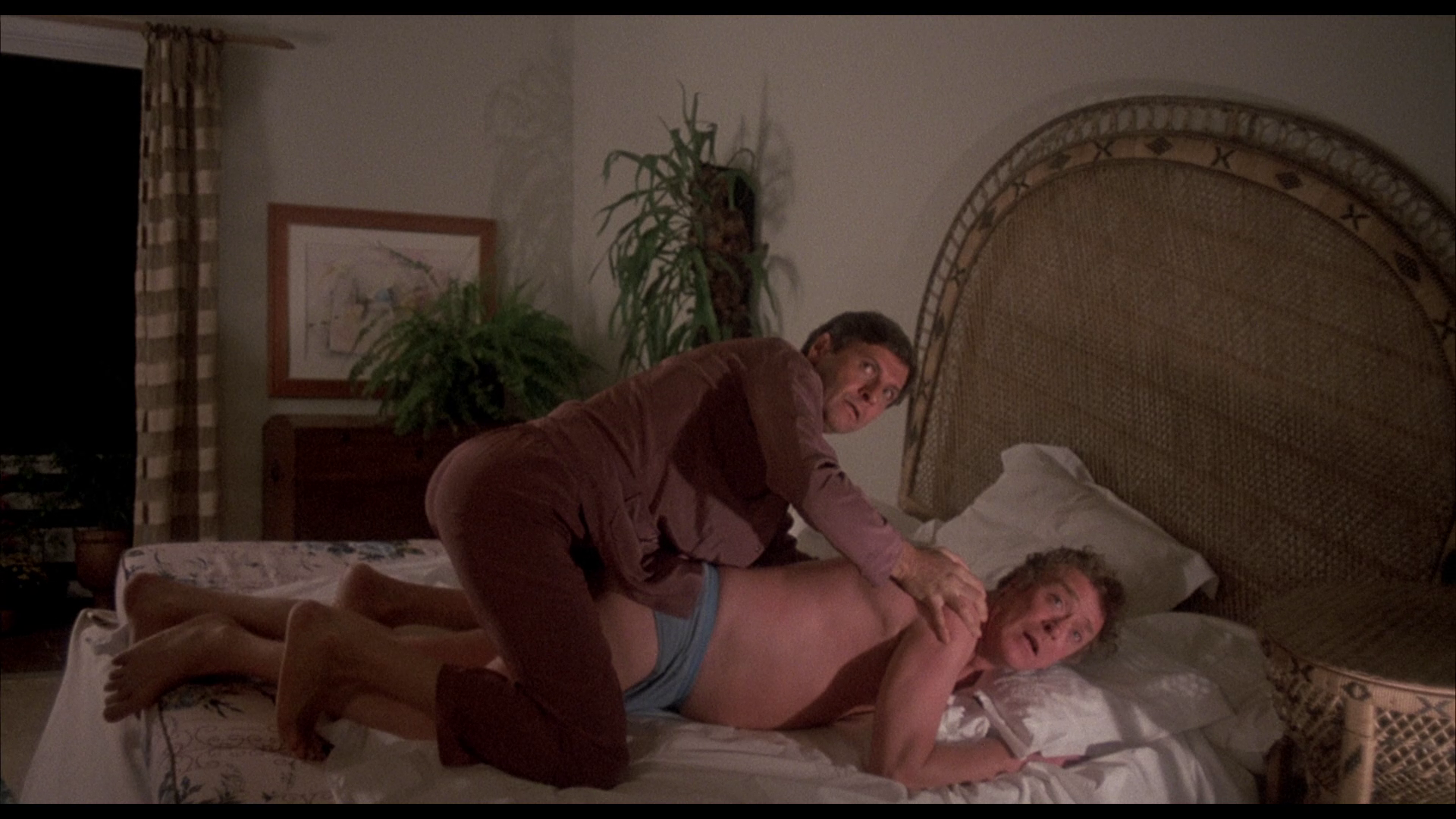 Blame it on Rio contains some good observations on the nature of male-female relationships: in an early scene, Karen expresses her unhappiness with Matthew, and the subsequent dialogue plays Matthew’s stereotypically male inability to understand his wife for laughs. ‘I’m sorry. I know I was wrong’, Matthew declares, feeling the need to apologise, though he’s not sure what for. ‘About what?’, Karen asks. ‘About whatever you think I was wrong about. I admit it’, Matthew responds. ‘I didn’t say you’d done anything wrong’, Karen tells him. ‘All right, I deny it’, Matthew says. Later, Matthew telephones Karen from Rio and attempts to persuade her to rethink her decision to leave him. Karen tells Matthew that the time apart will ‘give me the chance to think’. ‘What’s all this thinking that you have to do?’, Matthew asks. ‘I don’t want to shock you, Matthew, but I’ve been thinking for years’. Scenes such as this suggest that the film has an ironic approach to the chauvinism of Matthew and Victor, but even within this context Jennifer’s seduction of Matthew still feels like a middle-aged man’s fantasy. However, lines like Matthew’s declaration to Jennifer that ‘I was just remembering the first time I kissed you: it was at your christening’ are more likely to make the viewer wince - as is the unknowing Victor’s insistence that Matthew ‘babysit’ Jennifer whilst Victor goes out, and that ‘If she misbehaves I want you [Matthew] to put her over your knee’ (leading to knowing looks between Jennifer and Matthew). Blame it on Rio contains some good observations on the nature of male-female relationships: in an early scene, Karen expresses her unhappiness with Matthew, and the subsequent dialogue plays Matthew’s stereotypically male inability to understand his wife for laughs. ‘I’m sorry. I know I was wrong’, Matthew declares, feeling the need to apologise, though he’s not sure what for. ‘About what?’, Karen asks. ‘About whatever you think I was wrong about. I admit it’, Matthew responds. ‘I didn’t say you’d done anything wrong’, Karen tells him. ‘All right, I deny it’, Matthew says. Later, Matthew telephones Karen from Rio and attempts to persuade her to rethink her decision to leave him. Karen tells Matthew that the time apart will ‘give me the chance to think’. ‘What’s all this thinking that you have to do?’, Matthew asks. ‘I don’t want to shock you, Matthew, but I’ve been thinking for years’. Scenes such as this suggest that the film has an ironic approach to the chauvinism of Matthew and Victor, but even within this context Jennifer’s seduction of Matthew still feels like a middle-aged man’s fantasy. However, lines like Matthew’s declaration to Jennifer that ‘I was just remembering the first time I kissed you: it was at your christening’ are more likely to make the viewer wince - as is the unknowing Victor’s insistence that Matthew ‘babysit’ Jennifer whilst Victor goes out, and that ‘If she misbehaves I want you [Matthew] to put her over your knee’ (leading to knowing looks between Jennifer and Matthew).
The film’s depiction of Matthew and Jennifer’s relationship seems intent on divesting Matthew of any responsibility for his sexual liaisons with Victor’s young daughter. The to-camera monologues by Matthew, presumably intended to encourage the audience to empathise with him and relate his ‘problems’ to their own (in the manner of Woody Allen’s use of the same device in Annie Hall) arguably have the opposite effect, making Matthew’s declarations of his innocence seem like a case of the lady doth protesting just a little too much. The film fixates on this, and Jennifer’s insistent desire for Matthew, returning to it again and again – with the result that the film’s structure feels repetitious and seemingly underpinned by an anxiety surrounding its depiction of sexuality. Writing about the film at the time of its original release, Kerry Brougher suggested that Donen may have considered the picture to ‘be a colorful return to the romantic comedies of the ‘50s and early ‘60s’ but that the finished film ‘is so weighted down by a dirty-old-man point of view and so stuffed full of semi-lewd conduct, that not only doesn’t it work as a romantic comedy, it doesn’t even work as a movie’ (Brougher, 1984: 147). Meanwhile, Roger Ebert suggested that the film ‘has the mind of a 1940s bongo comedy and the heart of a porno’ (Rendleman, 2012: 118). However, given the film’s nature as what is essentially a bedroom farce, it seems churlish to criticise it too heavily: certainly, the film is true to the conventions of the form. It also contains at least one ‘truism’: when Matthew declares to his and Victor’s neighbour Eduardo that ‘I wasn’t thinking what I was doing’, Eduardo responds by asserting that ‘It is only when a man is not thinking what he’s doing that you can be sure he’s doing what he’s thinking’.
The film’s original poster prominently featured the derriere of a woman in a Brazilian bikini had to be airbrushed owing to the suggestion that the image was vulgar. Interestingly, the film’s various DVD releases avoided using this artwork in favour of a group portrait featuring the cast (which was also present, though far from the primary focal point, on the posters for the film), but the image of the bikini-clad rump is present on the cover of Fabulous Films’ new Blu-ray release.
One may presume that this Blu-ray release of Blame it on Rio has been timed to coincide with the recent French remake of Claude Berri’s Un moment d'égarement, directed by Jean-Francois Richet and starring Vincent Cassell and Francois Cluzet in the Matthew and Victor roles, respectively. The presentation of Blame it on Rio on this Blu-ray release, though sadly lacking in contextual material, is very good.
References:
Björkman, Stig, 1995: Woody Allen on Woody Allen. London: Faber & Faber
Brougher, Kerry, 1984: ‘Films 4, Comedy 0’. Orange Coast Magazine (May, 1984): 147-7
Rendleman, Todd, 2012: Rule of Thumb: Roger Ebert at the Movies. London: Continuum
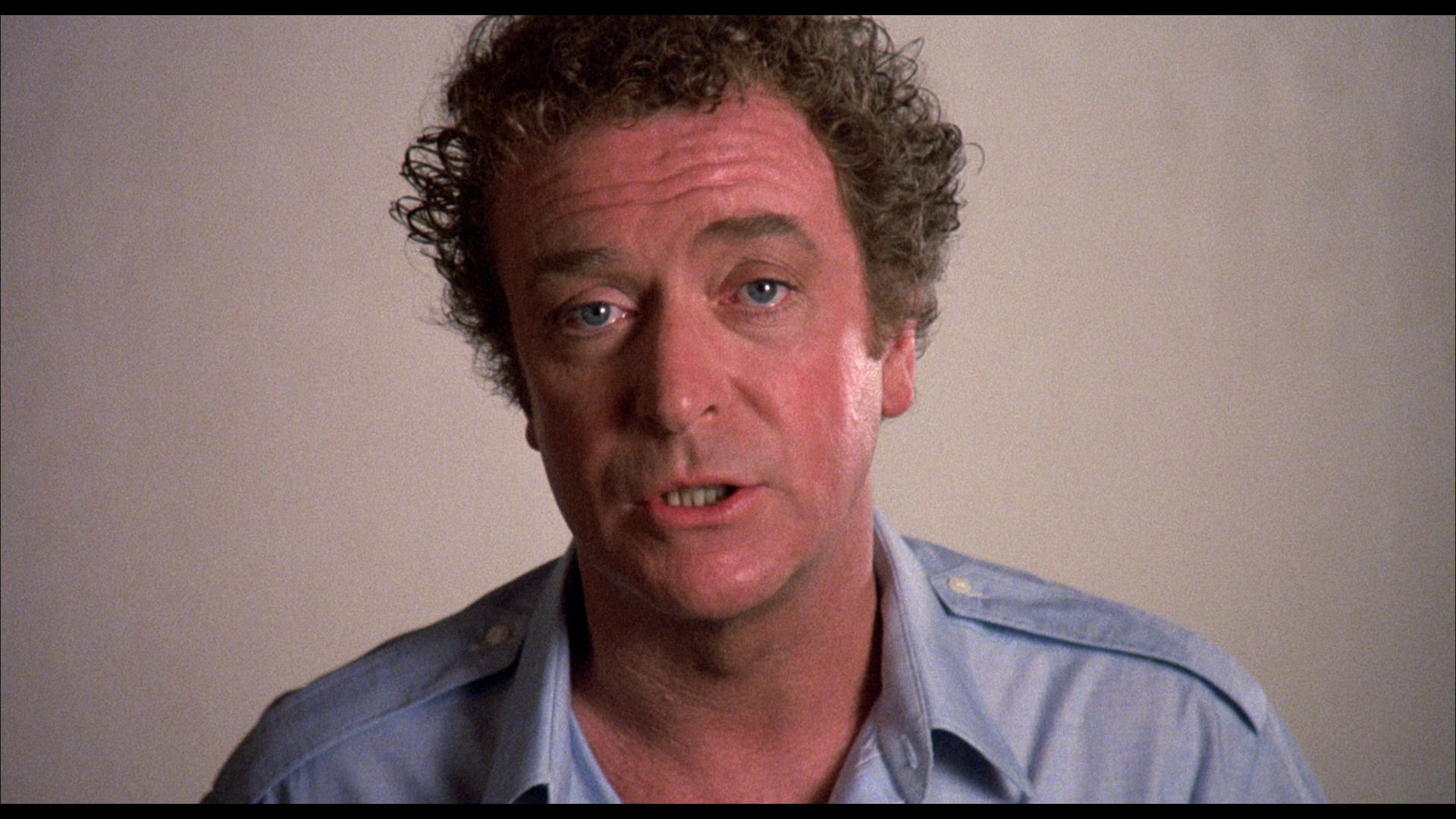
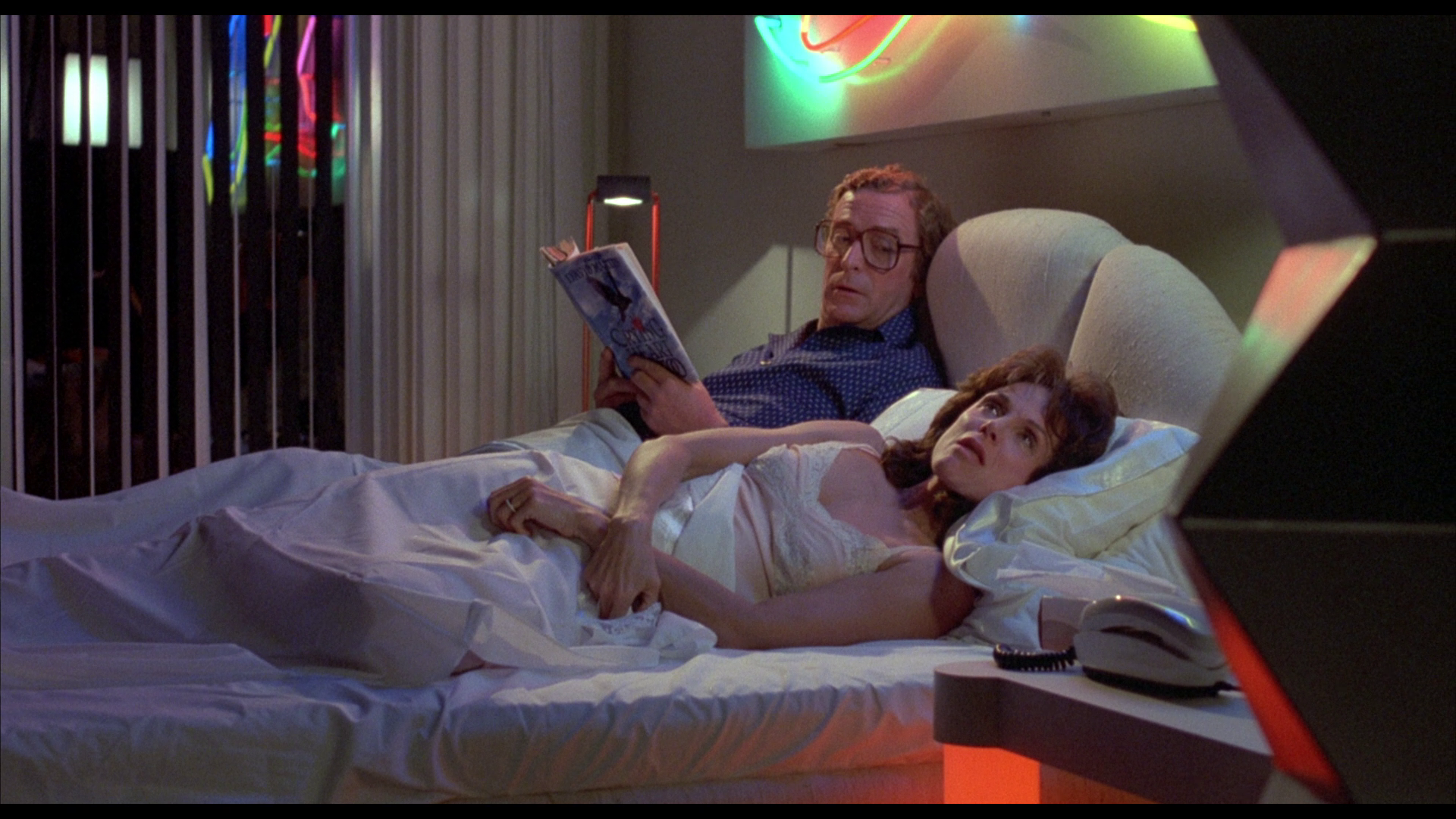
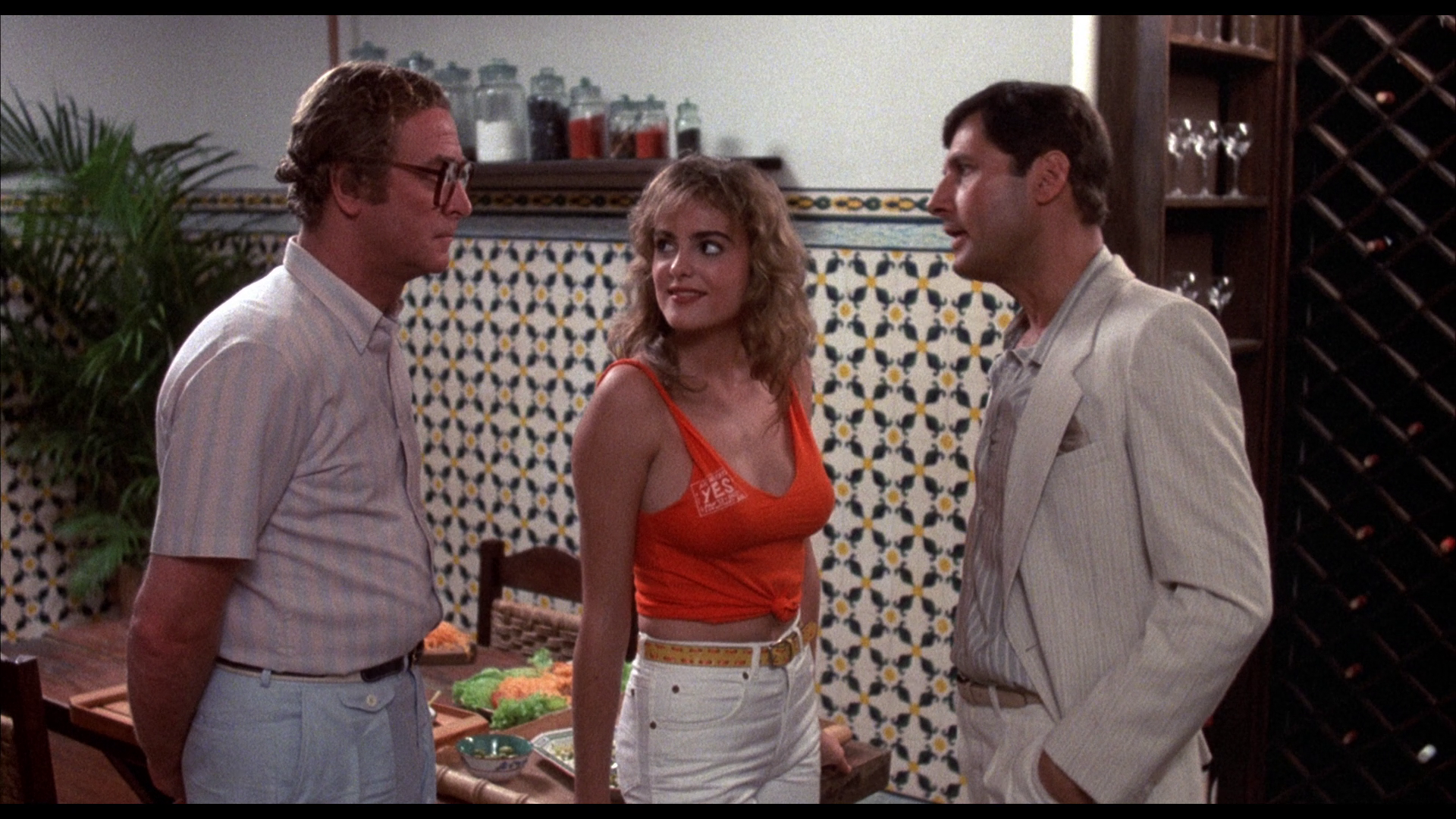
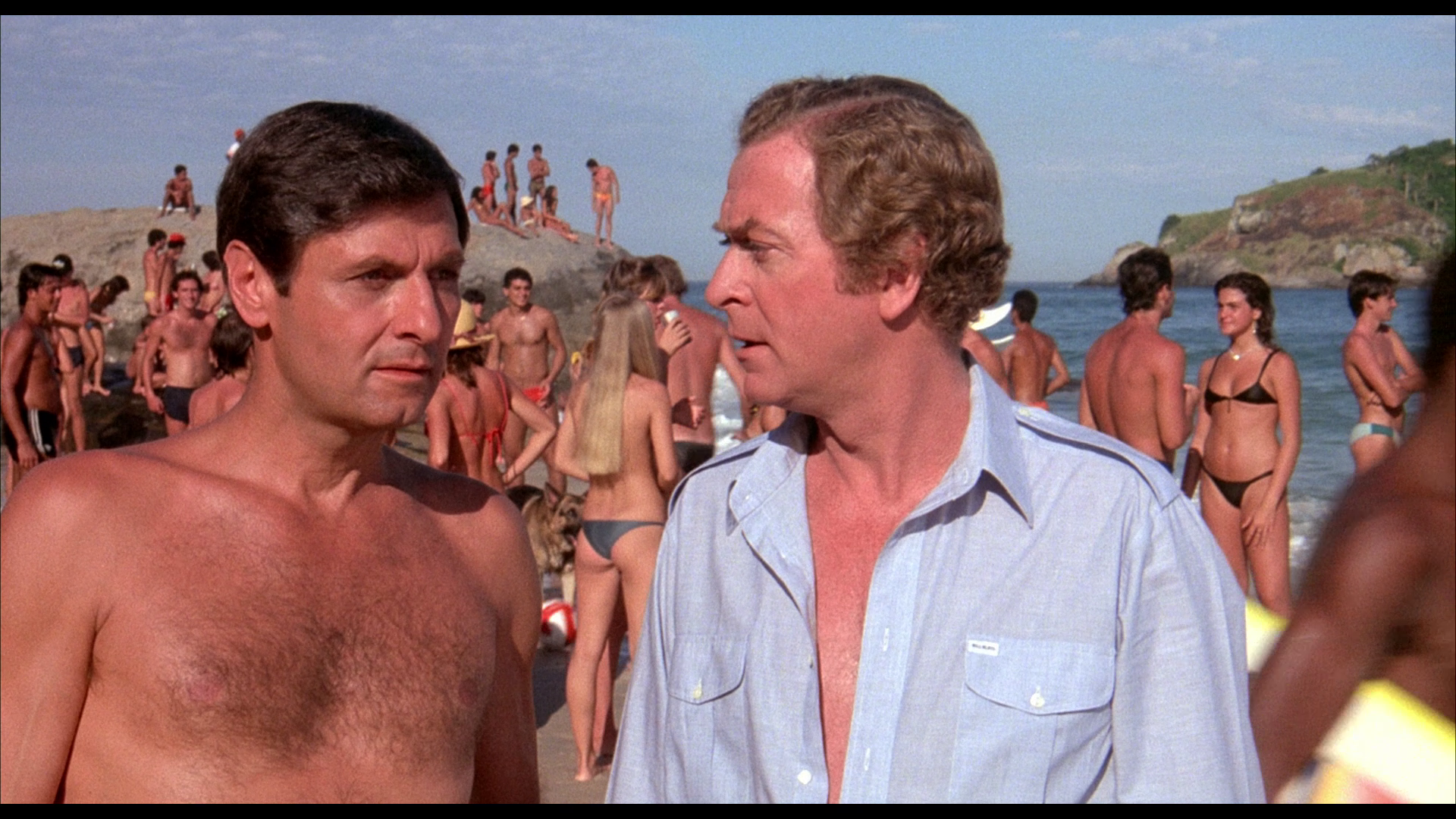
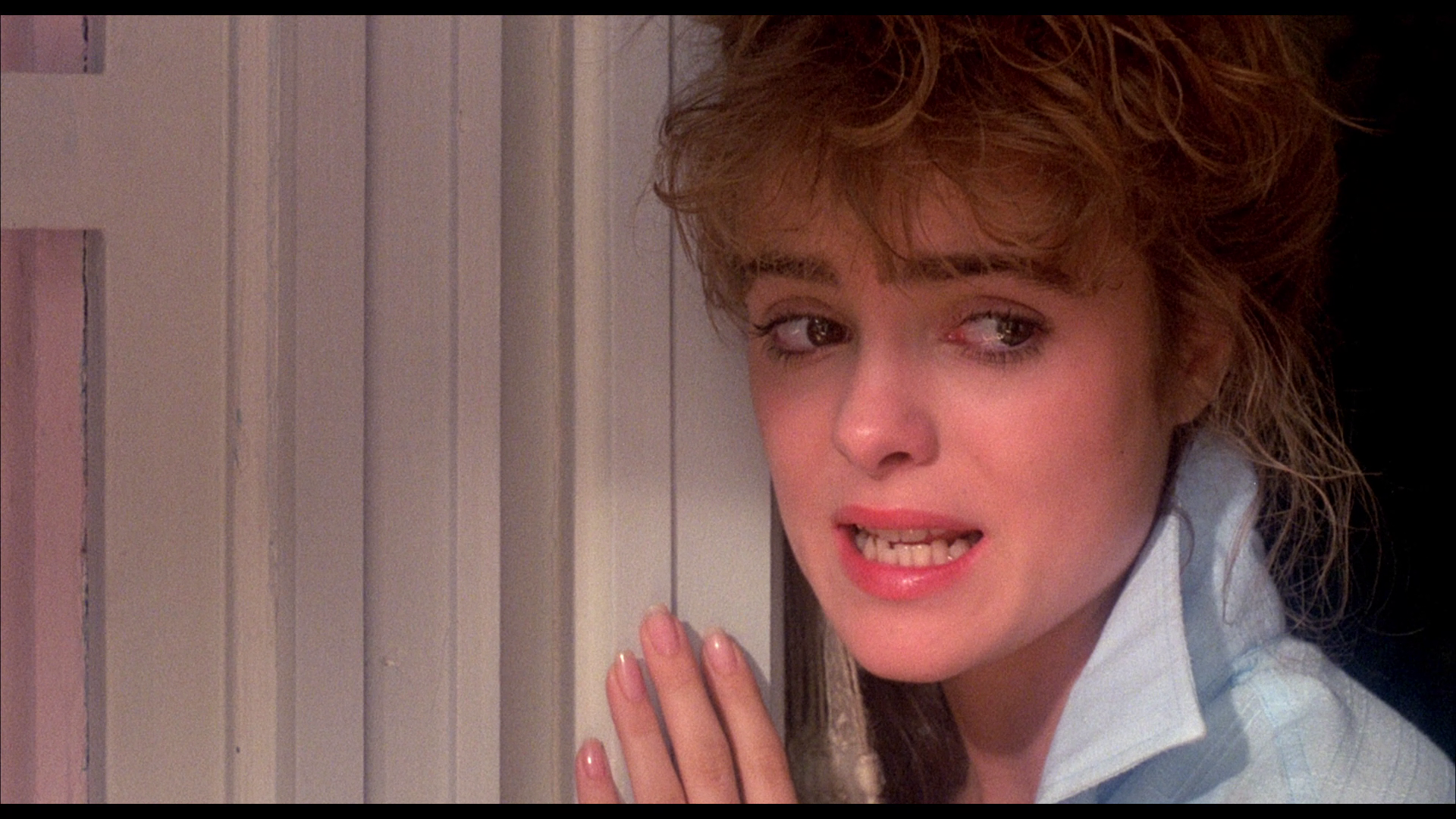
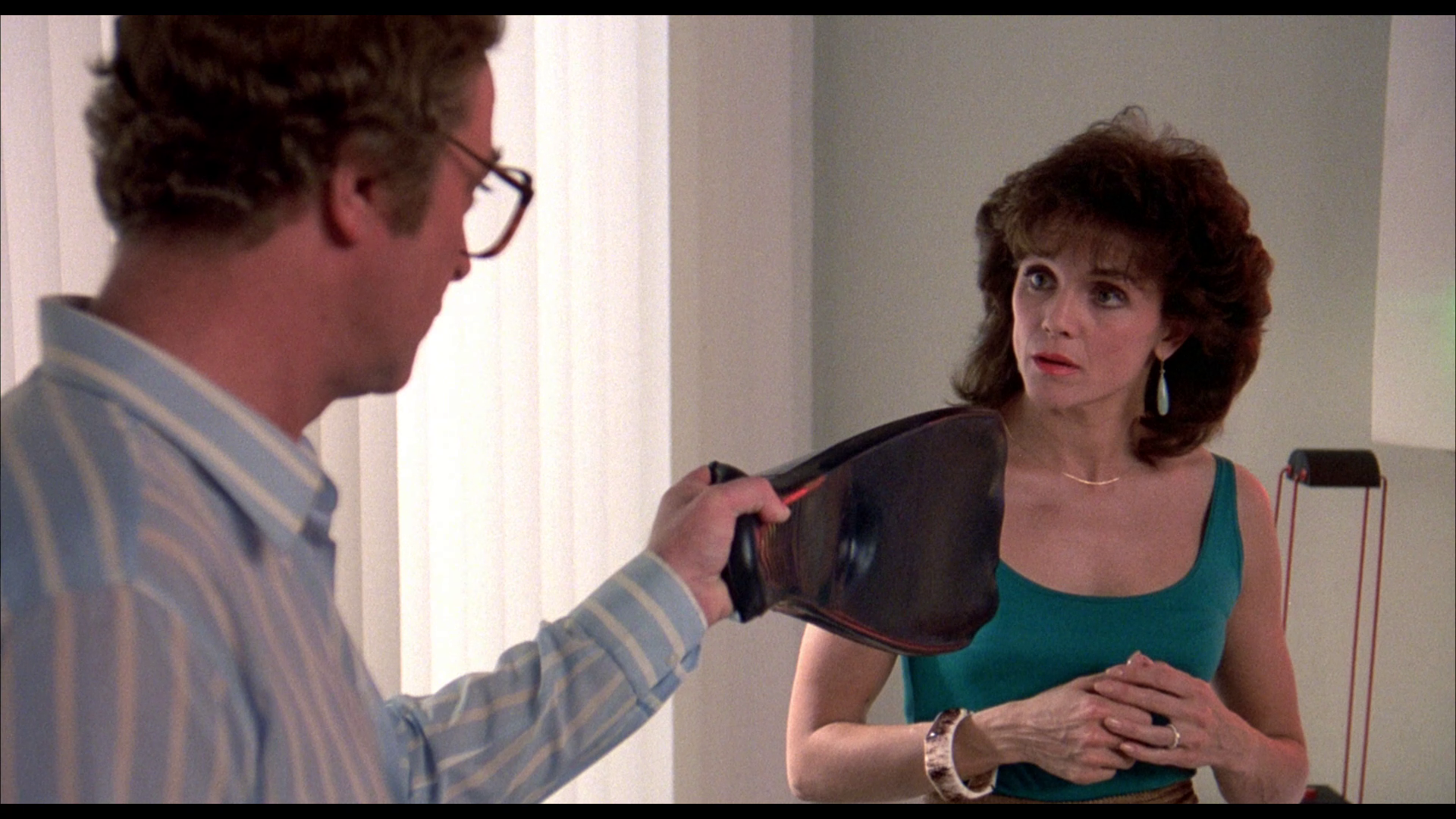
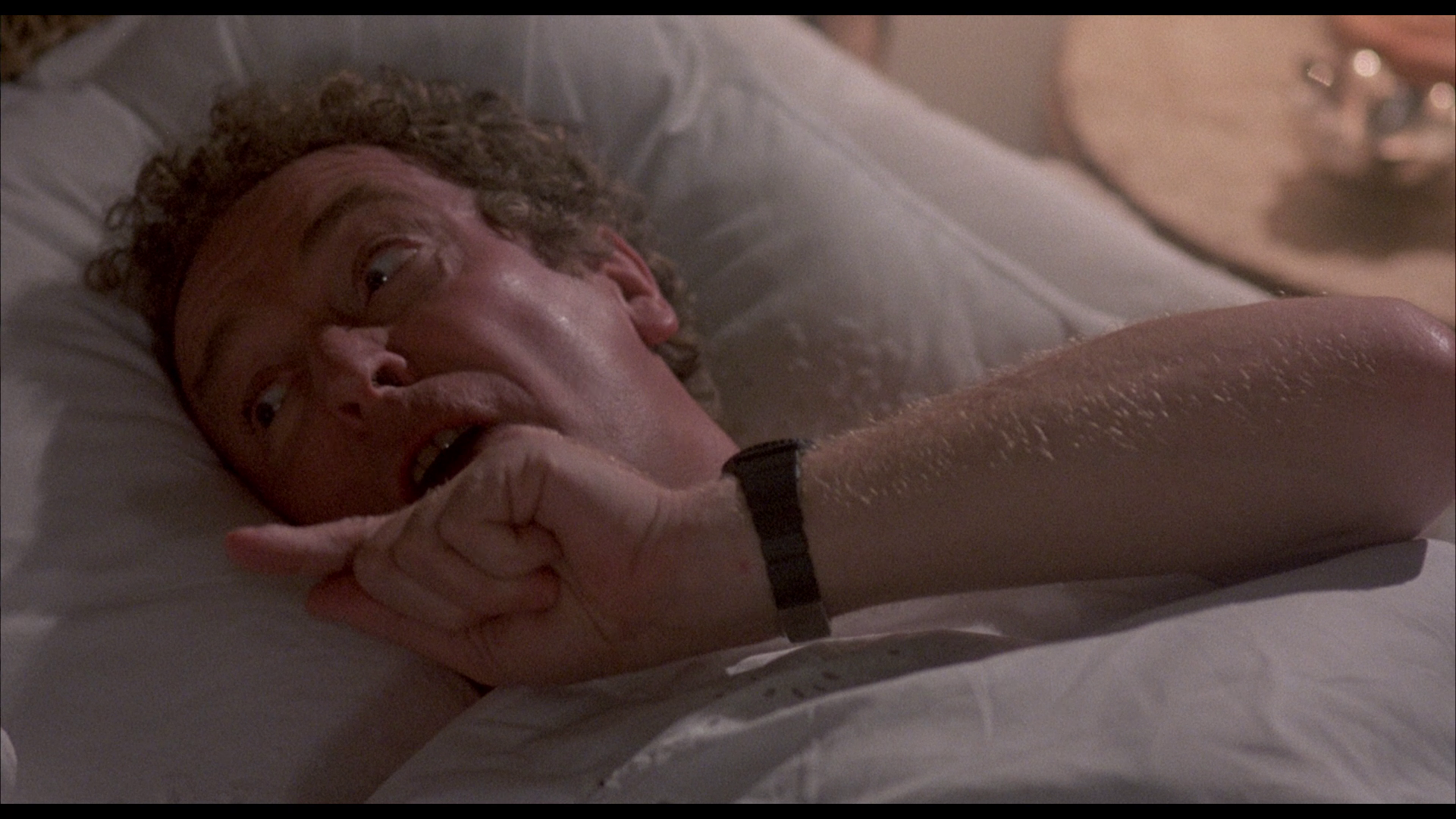

|

